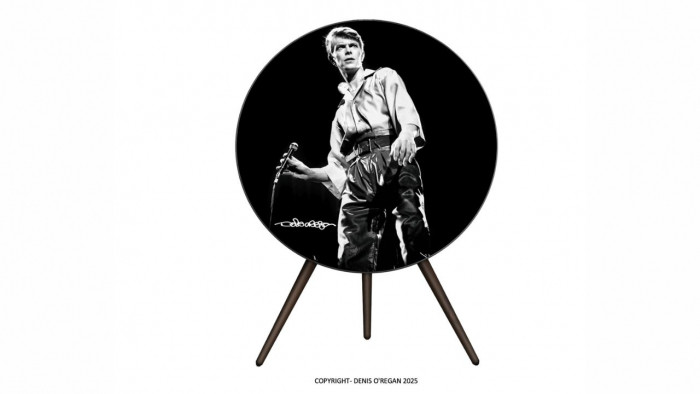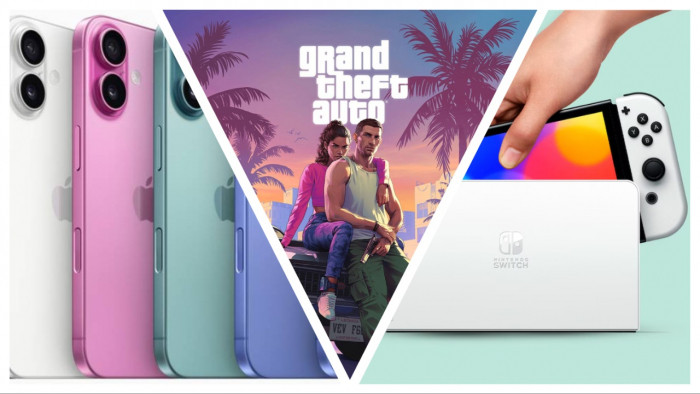Nick D’Aloisio is being hailed as the UK’s Steve Jobs. Tom Bailey tries not to feel too inadequate...
Last year, teenage CEO Nick D’Aloisio was named Innovator Of The Year by the Wall Street Journal, graced Time Magazine’s influential Time 100 and sold Summly – the skim-reading app he created in his bedroom – to internet giant Yahoo for $30m (cash).
If you haven’t read the newspaper headlines, he has recently been billed as everything from “Britain’s answer to Steve Jobs” to “an insufferable start-up brat”. Which is why, when ShortList meets D’Aloisio at a technology fair in Barcelona, where he’s due to speak alongside Facebook’s Mark Zuckerberg, we’re apprehensive.
Thankfully, it’s swiftly apparent that D’Aloisio – furiously clicking a novelty torch pen on and off with one hand while drilling commands into a Mac with the other – wears the ‘genius’ thing lightly. A fondness for energy drinks and Kronenbourg aside, it’s unlikely the Wimbledon-raised kid will go down the ‘child prodigy/gender re-alignment/Celebrity Big Brother’ path any time soon.
“Hey!” he says, swiping back an unruly mop of hair, flashing a smile that suggests he brushes his teeth with Daz and launching into a slick presentation. “Very typographical, very minimal, very clean. Even this one atom is extremely comprehensive,” he says, peppering us with Silicon Valley buzzwords.
“It’s a unique presentation of content, hyper-summarised...” Perhaps aware that our eyes are beginning to glaze over, D’Aloisio graciously lets us jump on to more pressing matters. Namely, if Siri’s great-grandchild will enslave the world and what it’s like having millions of pounds burning a hole in your skinny jeans...
Is it true you started programming apps when you were 12?
Yeah, my first app was Fingermill, a treadmill for fingers. On the first day in the app store it earned £79.
Was it an ‘epiphany’? How would you describe that moment?
It’s semi-bollocks, if that makes any sense. I got a thrill out of it. I mean, ‘wow, real money!’ But at the same time, it still took me six years to get to where I am now. From 12 to 15 it was three years of trying hard and having nothing happen. So it was an epiphany in that I got sucked into this, but I had no idea where it was going to lead. I probably did 10 apps before Trimit [which became Summly] took off.
When did you come up with the idea for Summly?
When I was 15, I was revising for some history exams using Google. There was all this information; I realised if I could create an algorithm that provided a condensed summary of the content, it would help to decide what’s worth reading.
Should there be some kind of general ‘quality control’ on the internet?
For years, all this stuff has been added to the web. YouTube’s got billions of videos – same with news, information and music. The next order is to refine that. That’s the new, exciting wave.
Do you consider yourself a geek?
The best thing is that I now idolise polymaths – people like Da Vinci and Michelangelo. They weren’t just engineers, they were artists and scientists, mathematicians and philosophers. They weren’t even experts in their own domain. Their genius lay in piecing things together.
Moving on, do you think computers will end up enslaving the human race?
It’s what author Ray Kurzweil called the ‘singularity’. Basically, the moment when human being and computer intelligence is equal. At that moment, we’ll have unlocked a world of other things, Artificial Intelligence and stuff. But it won’t happen for a very long time.
When was the first time you were approached with venture capital?
Not long after Summly launched. There’s a story that when Hong Kong billionaire Li Ka-shing phoned up, I asked him when we should meet – before or after school.
What’s it like working at Yahoo?
It’s really fun. I work in the London office, then I go to the US about once a month to see my team out there. Everyone knows Yahoo has to re-invent itself, so for someone who creates products, I can just come up with crazy ideas and try them. That culture generates innovation.
What things do you have on your desk?
A box of Yahoo T-shirts, which were sent from the US.
Shouldn’t you be wearing one now?
[Laughs] I’ve got a Yahoo case on my phone. That’ll cover it.
These days, everyone has an idea for a killer app. But how does one ascertain if it’s actually any good?
The criteria I always had was, ‘Would I use it? Would my friends use it? Would my family use it?’ And secondly, there’s no point building an app unless it’s a daily experience. If you can’t get people to come once a day, even for a week, they’ll never form the habit. In 2014, an app that doesn’t give you something new every day will not succeed.
What advice do you give young entrepreneurs?
Coding is a skill that, if you learn it young enough, you can become literate in it. And it can give you so many opportunities. It’s not necessarily the programming, it’s the awareness of the tech industry and entrepreneurship.
Because you’re young, is there a ‘lottery winner’ element to your fame?
I don’t see it like that. Any successful thing in the tech industry has that element. You could say the same thing has just happened to the WhatsApp guys, a million times over.
Have you invested any of your money?
I’ve done the odd angel investment [providing capital for start-ups], either because they’re in apps and I know their market well, or I’m a user. It’s not what I spend my time doing.
How much money do you have on your debit card right now?
[Laughs] £200 or something...
That wouldn’t buy a full tank of fuel, let alone a Ferrari. Is it all in trust?
Yeah, unfortunately.
Don’t your friends rib you for not buying a big yacht?
No, they might rib me if I don’t buy them a drink. They don’t want me to go off the rails either, so they’re not going to encourage me to go and do something stupid.
What does the Wall Street Journal’s Innovator Of The Year do for fun?
Go to the pub... Drink Kronenbourg. Sorry, is that boring?
Yahoo News Digest is available from the Apple App Store now
(Images: Getty, Wenn)










